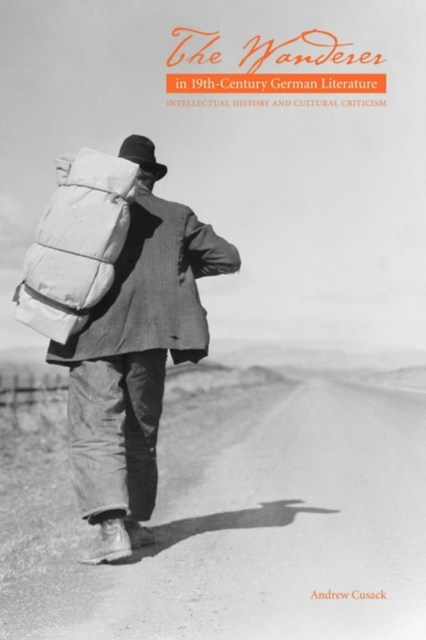
The Wanderer in Nineteenth-Century German Literature : Intellectual History & Cultural Criticism Hardback
by Professor Andrew Cusack
Part of the Studies in German Literature Linguistics and Culture series
Hardback
Description
Pathbreaking examination of the prominent 19th-c. motif with an eye toward literature as social commentary. The wanderer is an indispensable part of the German cultural imaginary.
The nineteenth-century prominence of the motif owes much to the self-conception of the intellectual pioneers of the day as wanderers.
The motif is also a keyto interpretation of the social and cultural phenomena of a turbulent century that began with the emancipatory claims of the Enlightenment and ended in untrammeled industrialism.
Writers from Goethe to Büchner, Fontane to Holtei were keenly aware of the motif's interpretive value, attempting to grasp with it not only such developments as mass migration and disappearing institutions but also unprecedented opportunities for artistic and scientific innovation.
This book re-interprets canonical works such as Goethe's Wilhelm Meister novels, Heine's Harzreise, and Büchner's Lenz, examines underresearched works by Fontane and Raabe, and charts new territory with readings of works by Gotthelf and Holtei -- a selection of texts that reveals the vast scope and changing function of the wanderer motif. Andrew Cusack pays scrupulous attention to the historical specificity of each work and to its relationship to contemporary aesthetic and philosophical currents, revealing the wanderer motif to be a significant vehicle of cultural memory that sustained the ideas of the Enlightenment and of Romanticism. Andrew Cusack is a Lecturer in the Department of Germanic Studies at Trinity College Dublin.
Information
-
Available to Order - This title is available to order, with delivery expected within 2 weeks
- Format:Hardback
- Pages:268 pages, 2 b/w illus.
- Publisher:Boydell & Brewer Ltd
- Publication Date:01/08/2008
- Category:
- ISBN:9781571133861
Information
-
Available to Order - This title is available to order, with delivery expected within 2 weeks
- Format:Hardback
- Pages:268 pages, 2 b/w illus.
- Publisher:Boydell & Brewer Ltd
- Publication Date:01/08/2008
- Category:
- ISBN:9781571133861










